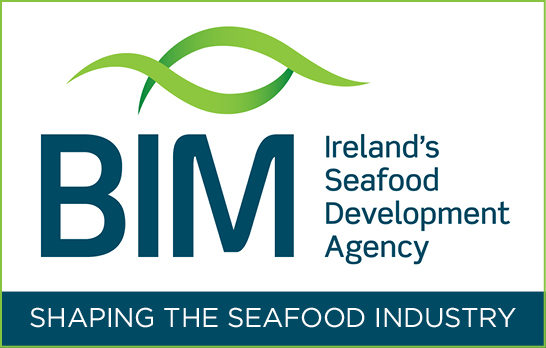Ireland through its national seabed mapping programme, INFOMAR has achieved global recognition for its endeavor to systematically map the seabed of its entire marine territory, and to unlock and sustainably manage the associated resources.
International partnership and collaboration between governments, industry, and academia have evolved as Ireland influences the roadmap towards better ocean governance, essential for the safety of society, our future food security, our energy, and for positive climate action and adaptation.
The Marine Institute and Geological Survey Ireland (GSI) INFOMAR programme team aim to complete Ireland’s seabed mapping by end 2026, potentially being the first country globally to do so.
In parallel, they are raising the awareness and impact of seabed mapping, and the innovation and technology development opportunities that Ireland can potentially derive from this world-leading endeavour.
Sean Cullen GSI Joint INFOMAR Manager, highlighted that “a recent special publication accepted by the Geological Society of London entitled ‘Mapping Ireland’s coastal, shelf and deep water environments‘ features case studies demonstrating the multiple applications of INFOMAR data and products”.
Thomas Furey, Marine Institute Joint INFOMAR Manager relayed that “from an innovation perspective, the INFOMAR team are coordinating a Small Business Innovation Research (SBIR) project, co-funded by Marine Institute and Enterprise Ireland.
“It will fund innovative approaches to image focussed seaweed identification, mapping and resource assessment, developing technologies or services that may have multiple applications in coastal zone management and marine environmental monitoring”.
As an island nation, Ireland has historically looked to the sea as a means of trade, transport and exploration. We are intrinsically linked with all things maritime, backed by a rich seafaring heritage & culture. At the end of the 20th Century, Ireland set out to fully investigate the ocean of opportunity that is our vast marine territory.
Through the Government of Ireland resourced Irish National Seabed Survey (1999-2005) and its successor INFOMAR (2006-2026), Irish efforts in systematically mapping our entire seabed will complete the Real Map of Ireland, leave a legacy for future generations, and provide a scientific foundation for accelerated coastal and marine economic growth.
INFOMAR is the national seabed mapping programme which is resourced through the Department of Communications, Climate Action and Environment (DCCAE), and managed jointly by Marine Institute and Geological Survey Ireland. It provides seabed depth, habitat, and geology data, critical for multi-sectoral marine activity and growth.
Site selection for offshore renewable energy and telecommunications infrastructure, navigation charts for safe shipping, transport and marine leisure, and protecting sensitive habitats and fish nursing grounds, all rely on accurate seabed maps.
In Harnessing Our Ocean Wealth, our national marine plan, INFOMAR is tasked with completing our seabed mapping, an essential task to realise the country’s coastal and maritime sustainable growth potential.
Overarching drivers relate to; (i) exploration to achieve knowledge and understanding of this complex system, (ii) resource assessment to determine living and natural resource distribution, (iii) protection to conserve sensitive habitats and predict marine and coastal risk, and (iv) governance to legislate and manage coastal and offshore Ireland and support maritime spatial planning.
One of the actions of the DCCAE Climate Action Plan 2019 is to complete the mapping of all Irish offshore waters through the INFOMAR Programme to support site selection for offshore renewable energy, the ocean energy research, development and demonstration pathway for emerging marine technologies (wave, tidal, floating wind) and associated test infrastructure.
In 2008 PwC assessed the potential return on investment of the 20-year INFOMAR programme investment of €80 million. Having taken a cautious approach, a 4-6 times return on investment to the state was indicated based on sectoral growth projections.
This seminal seabed mapping related economic assessment has been widely cited, supporting business cases for the launch of strategic national mapping programmes elsewhere globally, including in the UK, Norway and USA.
The INFOMAR programme is on budget and on target to deliver for Marine Ireland. Ireland has achieved international recognition in the hydrographic and seabed mapping communities for its approach and achievements to date.
INFOMAR’s systematic mapping approach has been adopted in the “AORA Seabed Mapping Roadmap” published by the EU, USA, and Canada composed Atlantic Seabed Mapping International Working Group. The extensive international network developed by INFOMAR is a key pathway to channel future associated Irish innovation, products and services.
INFOMAR’s open data policy and digital maps and products provide a window for Ireland’s SME sector to develop and market their services.
Opportunities are diverse, including the use of INFOMAR shipwreck maps and 3D models to attract international dive and angling tourism trade, the use of stunning seabed imagery on clothing, or the use of the accurate depth data to model how much aquaculture an inshore bay can sustainably support.
The Marine Institute and Geological Survey Ireland will continue to raise the profile and impact of the INFOMAR programme to support industry growth, research and innovation, to provide a scientific data-based foundation for government decision support, and to inform the public through innovative platforms such as interactive story maps.
‘One Shared Ocean, One Shared Future’ is the final topic in the Marine Institute’s 10-week Oceans of Learning series. This final week focuses on the partnerships between marine science, industry and education, and how these collaborations strengthen our goal in ensuring a healthy and sustainable future for our ocean.
To view this week’s resources, visit One Shared Ocean, One Shared Future.
For more information on Oceans of Learning, visit www.marine.ie and follow the Marine Institute on Facebook, Instagram and Twitter.


Recent Comments